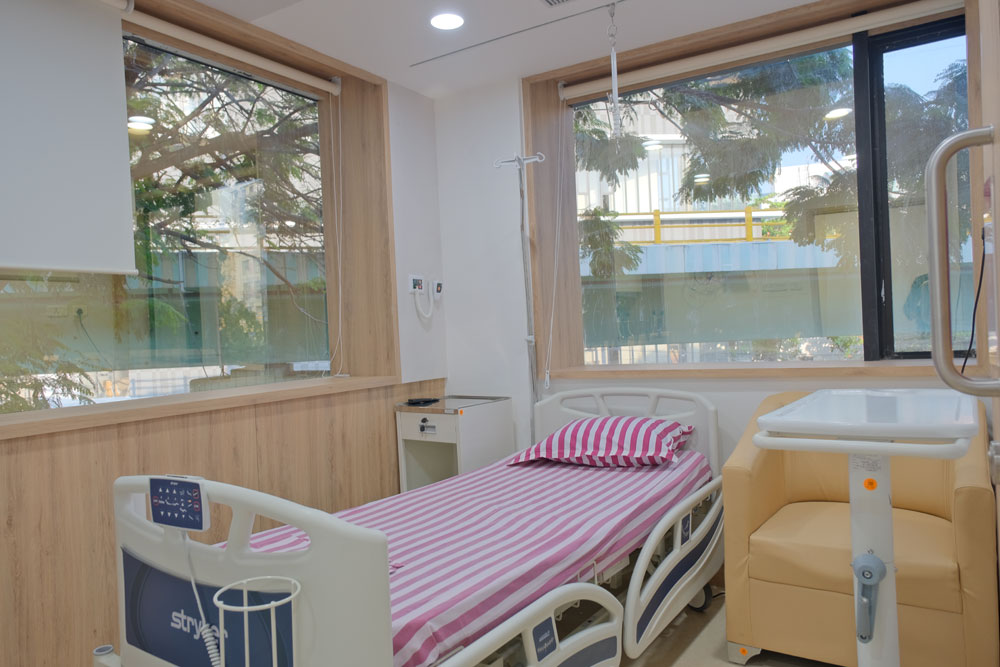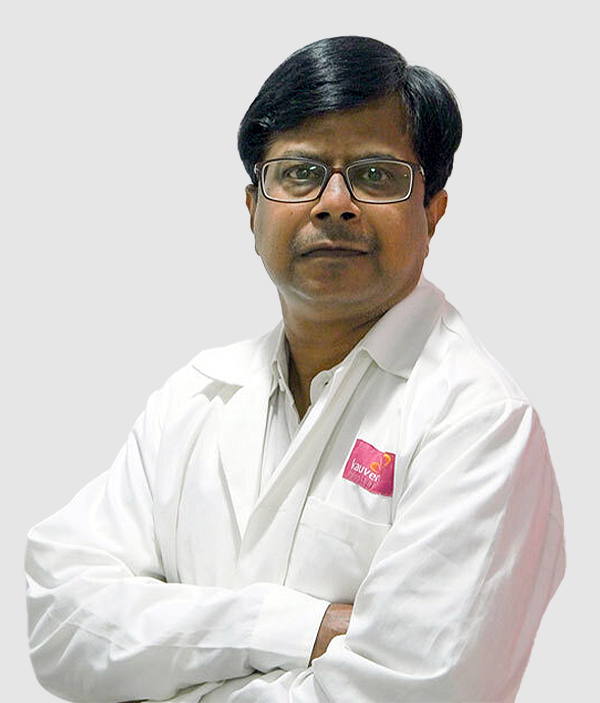Medical Oncology
Medical Oncology is a branch of medicine that deals with the treatment of cancer using methods like Chemotherapy, Immunotherapy, Hormonal Therapy and Targeted Therapy. It is often advised in tandem with surgery or radiation therapy to ensure the best clinical outcomes
The Kauvery Advantage
- Globally accepted, standardised treatment protocols
- State-of-the-art infrastructure
- A world-class panel of experts
- Customised multi-modality therapies
- Up-to-date Chemotherapy schedules
- Multidisciplinary tumour board for all cancers
Type of Cancer Therapy
Immunotherapy
Immunotherapy is the process of activating the immune cells to fight against cancer cells. It is a personalised treatment which intends to enhance the body’s defence mechanism to combat and destroy cancer cells. Immunotherapy uses the cells made by the patient’s own body or treatments made in a laboratory to improve or restore immune system function. The reprogramming of the immune system in a patient’s body is done through several ways (drugs, cancer vaccines) and is personalised to the specific cancer condition.
Drug therapy
Anticancer cell antibodies are given through injection, which will remove the immune system blockade and activate the cancer-specific immune system.
- Helps improve the results of other therapies such as Chemotherapy
- Works well when other treatment methods fail, such as Radiation or Chemotherapy(especially in cases of skin cancer)
- Lesser side effects
Targeted Therapy
Targeted therapy is a cancer treatment that uses drugs and is completely different from traditional Chemotherapy. The modality known as targeted therapy helps stop cancer from growing and spreading to other organs. They work in a pattern of targeting specific genes or proteins specifically seen in cancer cells. These genes and proteins found in cancer cells could be related to cancer growth, like blood vessel cells.
Advantages
- Blocks cancer cells from multiplying
- Prevents cancer cells from living longer
- Does not affect the normal cells nearby, hence lesser side effects
- Highly effective since they are specific to cancer cells
Hormone Therapy
Some cancers use hormones to grow or develop, which means the cancer is hormone-sensitive or hormone-dependent. Hormone therapy for cancer uses medicines to block or reduce the number of hormones in the body to stop or slow down cancer growth. Hormone therapy stops hormones from being developed or prevents hormones from making cancer cells grow and divide.
Advantages
- Helps reduce the size of cancer before surgery
- Prevents the recurrence of cancer
- Helps destroy cancer cells which have come back or are spreading
- Hormone therapy is used in many cancers like breast, ovary, uterus, prostate etc
Chemotherapy
Chemotherapy is a type of cancer treatment that uses drugs to destroy cancer cells. Chemotherapy works by stopping or slowing the growth of cancer cells, which grow and divide quickly
Chemotherapy is given as
- Neoadjuvant – Chemotherapy is delivered before surgery or radiotherapy
- Adjuvant – Chemotherapy is delivered after the surgery or radiotherapy
- Palliative – Chemotherapy is delivered in advanced stages of cancers to improve the quality of life
Chemotherapy may be used to destroy cancer cells that have come back (recurrent cancer) or spread to other parts of the body (metastatic cancer). Some diseases like blood cancers can be treated with chemotherapy alone.
Different methods of giving Chemotherapy
- Chemotherapy infusions: Chemotherapy is most often given as an infusion into a vein (intravenously). The drugs can be delivered by inserting a tube with a needle into a vein in the arm or into a device in a vein in the patient’s chest.
- Chemotherapy pills (Oral Chemotherapy): Some chemotherapy drugs can be taken in pill or capsule form.
- Chemotherapy shots: Chemotherapy drugs can be given as an injection
- Chemotherapy creams: Creams or gels containing chemotherapy drugs can be applied to the skin to treat certain types of skin cancer
- Chemotherapy drugs used to treat one area of the body: Chemotherapy drugs can be given directly to one area of the body. For instance, directly into the abdomen (intra-abdominal), chest cavity or central nervous system (intrathecal).
Advantages of Chemotherapy
- Helps in shrinking cancer and extending the survival rate.
- For some with borderline cancer, it may help reduce the size of the tumour so that surgery can be done
- If given post-surgery, it will help avoid the recurrence of cancer by killing microscopic cancer cells which may have been left behind.
Tumour Board
Benefits of Tumour Board
- Improved outcomes
- Improved patient care
- Staging accuracy and appropriate treatment
- Receiving care in accordance with clinical practice and standard guidelines
- Improved communication
- Cost-effective care
- Improved clinical and patient satisfaction
Cancer treatment is often a multi-modality approach and includes either one or a combination of modalities like surgery, radiation therapy, chemotherapy and/or immunotherapy. Unlike other diseases, in cancer management, more than one specialist is often involved in treating various phases of the disease.
It usually is taxing for both the patients and the attenders to move from one specialist to another – to discuss the treatment options, explain the case history, share test results etc. The approach of “one specialist at a time” leaves no room for structured engagement between the various specialists to discuss the case in a comprehensive manner.
Hence, coordinated care involving multiple physicians and specialised expertise is pivotal in cancer management. A multidisciplinary approach, where inputs from a patient’s primary oncologist, surgeons, radiologist, etc., are integrated for diagnosis, planning, and care of cancer, greatly benefits the patient. Evidence is mounting that this approach to cancer treatment improves medical management and presents a new standard of care for diagnosis and treatment planning. This approach is facilitated through the tumour board.
Tumour board meetings can include doctors such as surgical oncologists, radiation oncologists, medical oncologists, pathologists, radiologists and palliative care physicians. Depending on the cases being discussed, additional doctors, such as gynaecologists, plastic surgeons, orthopaedics or urologists, may also participate. A diverse range of other healthcare providers, including nursing specialists and social workers, may also take part. Keeping the patient’s privacy in mind, only people who need to be involved will participate in the discussions.
Book an Appointment
Kauvery Day Care
The Day Care facility helps patients walk in and out on the same day to take treatments such as Chemotherapy, Immunotherapy and Targeted Therapy, Blood transfusion and Hydration.
- State-of-the-art infrastructure
- Lesser infection rates
- Lesser time spent at the hospital
- One of India’s most trusted hospitals
- Affordable Healthcare
Conditions treated
- Lung Cancer
- Breast Cancer
- Head & Neck Cancer
- Genitourinary Cancer
- Gynaecological Cancer
- Gastro-Intestinal Cancer
- Lymphoma
- Leukaemia
- Myeloma
- Sarcomas









